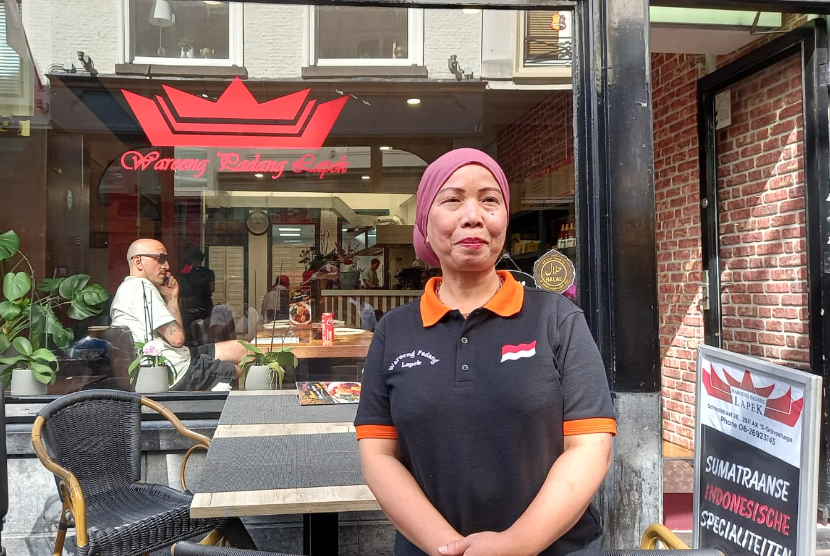Can Indonesia's Gastrodiplomacy Reach Greater Heights?
- Denisa Mayari
- Nov 19, 2023
- 4 min read
As we delve into the tantalizing world of Indonesian cuisine, one can't help but wonder: have we truly harnessed the full potential of gastrodiplomacy? In a globalized world where culinary traditions have the power to transcend borders and build bridges between nations, Indonesia's rich and diverse culinary culture stands as a remarkable asset. Yet, as we savor the flavors of our island nation, it begs the question - could Indonesia's culinary diplomacy reach even greater heights?
When we look at countries like Thailand, we see how effectively they have harnessed the power of their cuisines to entice the world. Thailand's government has taken a pioneering and highly active role in utilizing food as a diplomatic tool. As early as 2002, they introduced the "Global Thai" program, with the goal of expanding the presence of Thai restaurants worldwide. Ultimately, Thai restaurants have become ubiquitous in major cities worldwide, serving authentic dishes such as pad thai, green curry, and tom yum. This global presence has allowed Thailand to build a strong brand image, with Thai cuisine often being associated with freshness, spiciness, and unique flavors.
Now, Indonesia's culinary diplomacy beckons our attention, encouraging us to observe whether it can similarly captivate global taste buds and leave a lasting imprint on the world stage. Indonesia, with its diverse and flavorful dishes, is not far behind in this endeavor. Many Indonesian restaurants around the world have been established by Indonesian diaspora members who are passionate about sharing their country's culinary treasures. These establishments play a vital role in promoting Indonesian culture and cuisine globally.
1. Toba (London)
Toba, situated in central London near Piccadilly and Trafalgar Square, is the brainchild of North Sumatran chef Pino Edward Sinaga. Known for his previous success with Pino's Warung in Camden Market, Pino, with support from the Indonesian Embassy in London, has brought a contemporary twist to well-known traditional Indonesian dishes like rendang, chicken satay, and staple Batak dish, ikan arsik.
The restaurant's ambiance, featuring soft lighting, earthy tones, and wooden textures, exudes an upscale feel that sets it apart from the typical casual perception of Indonesian dining. Despite its elegant setting, Toba's focus on exceptional Indonesian cuisine and warm hospitality remain at the forefront, earning rave reviews from patrons.
2. Cinta Jawa (Multiple Locations in Japan)
With multiple locations in Japan, Cinta Jawa Café is a culinary and cultural haven that was established in 2012 by Sri Astuti, affectionately known as Ringo-chan. Her vision was to introduce authentic Indonesian cuisine to the Japanese community and cater to the culinary desires of the Indonesian diaspora residing in Japan. Similar to Toba, Cinta Jawa is known for serving popular, staple Indonesian dishes. Alongside its delectable food, the cafe also showcases a diverse collection of ethnic Indonesian arts, crafts, and batiks, providing a rich cultural experience.
Cinta Jawa Café has become a favored destination for tourists including Indonesian celebrities, online influencers, public figures, and is a sought-after venue for various events. Particularly noteworthy is the recognition and request for collaboration extended by Ridwan Kamil, the 15th governor of West Java, who seeks to promote West Javanese coffee in Japan through Cinta Jawa's establishments.
3. Waroeng Padang Lapek Jo (Den Haag)
Located in Den Haag, Netherlands, Waroeng Padang Lapek Jo stands as one of the country's most renowned Padang restaurants. Patrons can savor typical Minang dishes such as young jackfruit curry (gulai nangka), cassava leaves (daun singkong), green chili sambal (sambal hijau), spicy chili eggs (telor balado), squid with green chili (cumi cabai hijau), potato cakes (perkedel), jengkol (dogfruit), typically served rijsttafel style, à la Dutch.
The visionary behind this culinary haven is none other than Suprapti Tanjung, affectionately known as Uni Lapek. Her journey began with the offering of authentic Minang cuisine at local markets. However, as the demand and enthusiasm for her culinary creations soared, she decided to expand her venture, culminating in the establishment of the restaurant in 2019, which now generates a monthly revenue of approximately 60,000 euros. Eventually, Lapek Jo underwent renovations, expanding the restaurant to house the many guests who were eager to indulge in its authentic Minang flavors.
The growth and expansion of Lapek Jo was also made possible with the invaluable support of PT Bank Negara Indonesia Tbk (BNI) and the endorsement of Minister of State-Owned Enterprises (BUMN) Erick Thohir, who officially inaugurated the restaurant in 2022. Suprapti's journey also led her to participate in the BNI Diaspora Go Global program, which not only facilitated the introduction of Indonesian products to international markets but also played a pivotal role in attracting more foreign tourists to our homeland. This support proved to be both instrumental and indispensable in ensuring the global recognition of Indonesian culinary culture.
The incredible flavors of Indonesian cuisine, promoted by establishments like Toba, Cinta Jawa, and Waroeng Padang Lapek Jo, is proving to be a potent vehicle for Indonesia's culinary diplomacy. These restaurants, guided by passionate individuals like Pino Edward Sinaga, Sri Astuti, and Suprapti Tanjung, have not only satisfied the cravings of Indonesian diaspora communities but have also captured the attention of global audiences.
As we witness their success stories, it becomes evident that Indonesia's rich and diverse food culture has the potential to be a formidable instrument in building bridges, fostering cultural exchanges, and promoting the nation's soft power on the international stage. With continued support and innovation, Indonesia's culinary diplomacy can continue to thrive and make an enduring mark in the global gastronomic landscape, leaving a lasting imprint of its vibrant culture and flavors.


.png)














Comments